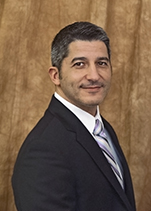Being an Agent of Change
Institutional Investor at the Diversity, Equity and Inclusion Roundtable in Chicago recognized 12 industry leaders from the institutional investment work for their leadership in diversity. Here are some excerpts from our conversation with Jose Gonzalez.
Based in Springfield, Illinois, the Teachers’ Retirement System of Illinois (TRS) is the state’s largest plan at $64 billion, divided into four buckets: 49% equities; 20% real estate; 7% hedge funds; and the rest, distributed among global income, private credit, and short-term cash – all externally managed.
After growing up in the Chicago area, Jose entered the investment industry as a futures and options trader, then spent 14 years at the Illinois State Treasurer managing a local government investment pool of $5 billion in assets. After having held several roles at TRS, which he joined in 2015, he assumed the role of Senior Investment Officer of the public pension plan’s Diverse and Emerging Managers program in 2019. Today, he manages close to 30% of the Teachers Retirement System of Illinois’ assets or $18 billion with diverse managers.
The following has been edited for clarity.
 How do you define diversity?
How do you define diversity?
To me, DEI means providing opportunity and access to capital for diverse, underrepresented, female managers. Raising capital is really tough, so being able to support managers is important.
The Illinois state legislature defines a minority manager as any minority by race or gender that has 51% ownership of the management company, and Illinois has a mandate of 20% of all a pension’s exposure has to be with diverse and female minority managers. There is more to diversity than just ownership, so I went to the Board in December 2020 and proposed several initiatives around DEI.
I presented what I called the “Redefining Diversity” initiative that looks at the total workforce by the three layers: Ownership’s going to be the most important layer of a firm that’s going to dictate how a firm is going to look like, but the leadership level is important because if you don’t become partner or principal, or you don’t get equity share, you’re going to spin out and start your own firm – then, across the total workforce, "What does promotion and retention look like, and how are the economics distributed?"
How do you measure diversity?
I want to be able to take all those layers and come up with a metric and a score where I can run dual portfolios and say, “This is my diverse portfolio at 51% ownership; this is what a diverse portfolio with a new metric looks like." By creating a type of score or metric, we can say to managers, “I can benchmark you against your peers, against your asset class, against your strategy, against several different ways of benchmarking,” and then say, “Are you making improvements? How does your whole workforce look?”
This assessment includes firms that might not be minority firms, but may be your bigger firms that are relationships we’ve had for a long time where we need to take a look and say, “What does your firm makeup look like today?” “Where could it be tomorrow and in three to five years from now?” and “What can I do to make an impact or support you, so you get better in terms of your diversity hiring?”
Manager sourcing and selection
Most of my focus is around asset managers and making sure that we’re being more inclusive in that space. I don’t have asset class targets, in terms of when and how I source diverse and emerging managers, so it’s usually opportunistic.
We’ll have tactical plans of private asset classes, and I’ll look for diverse or emerging managers who might fit those needs of the asset class. I talk to a lot of managers because our main goal of the program is to come in with smaller allocations into newer relationships, then over time, grow with them and be able to scale with them.
What is your proudest accomplishment?
I think my biggest accomplishment is that I set the wheel in motion. I consider myself an agent of change, and change is not going to happen overnight, but it has to start today, and it can’t be a one-off thing. After all that’s happened in 2020, it can’t be token work: It can’t be, “I’m going to raise a diverse fund and be done,” or “I’m going to give a token effort here and there.”
A lot of our GPs are doing great work around DEI as well as other partners and relationships in our network in really getting to high schools and universities and really thinking about asset management in the investment world.
For the full list of DEI Award winners, visit Allocator Intel here.
To discuss the content of this article or gain access to like content, log in or request membership here.
